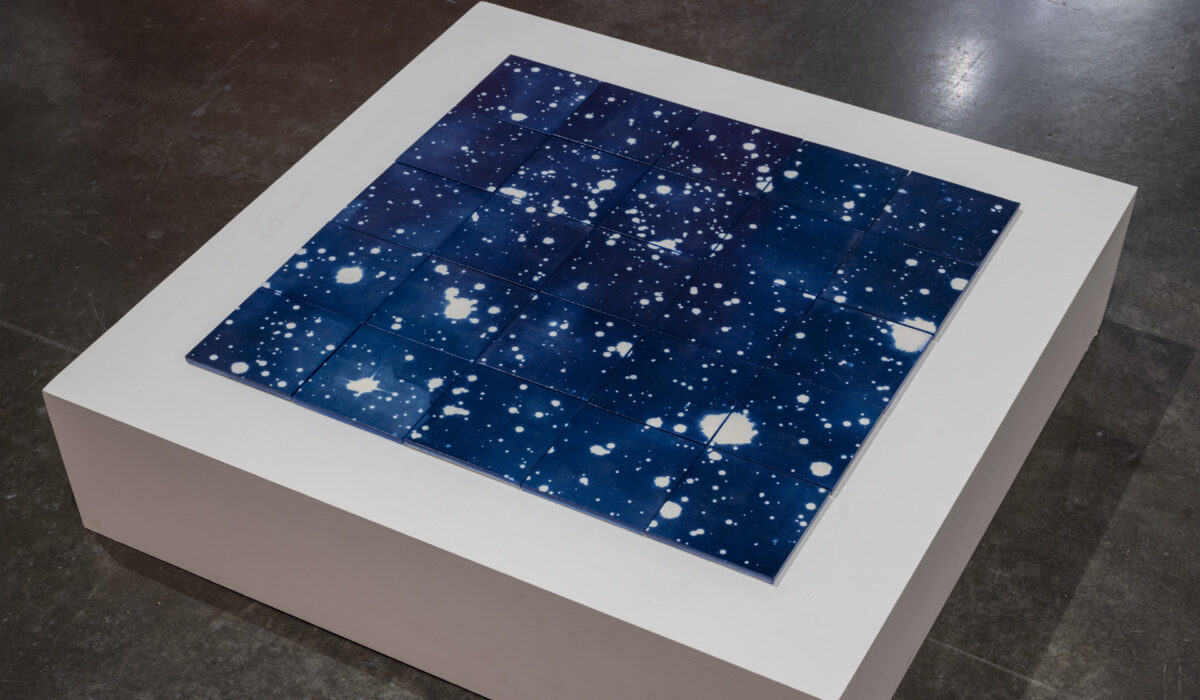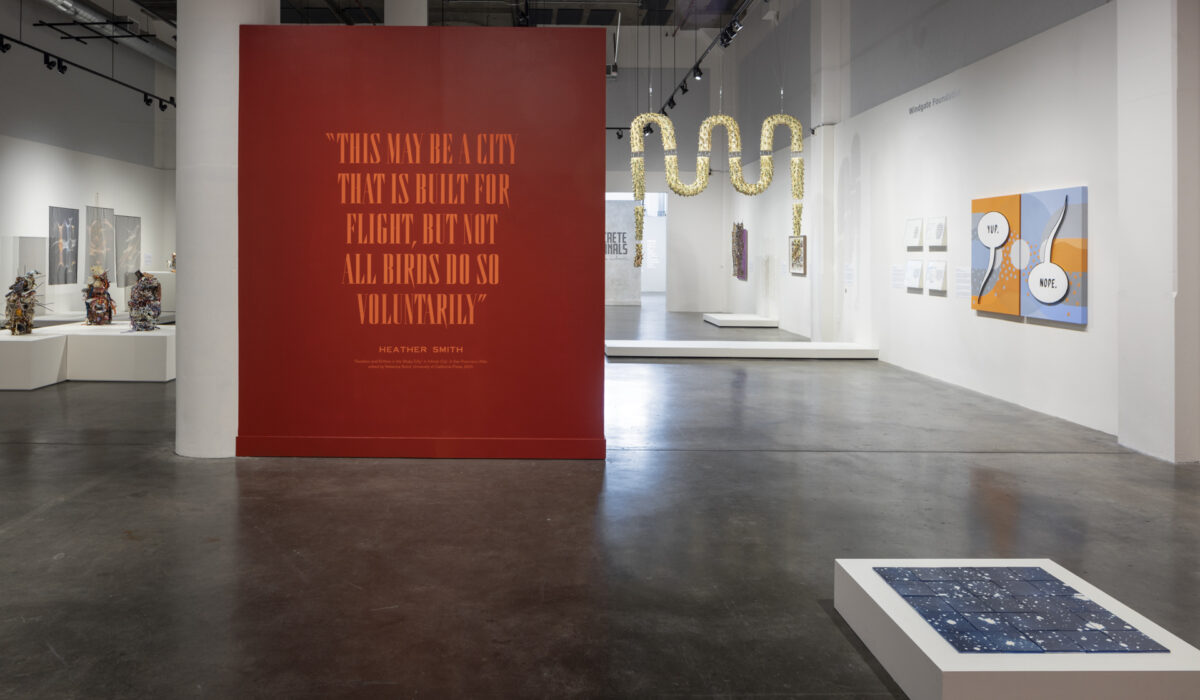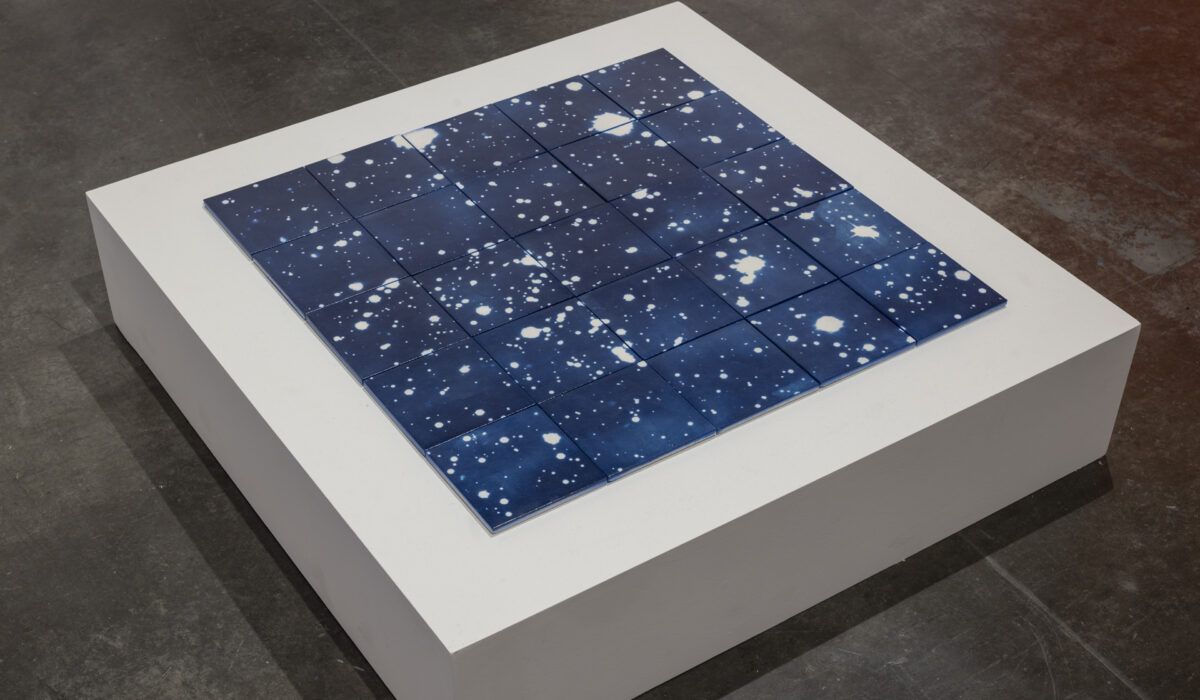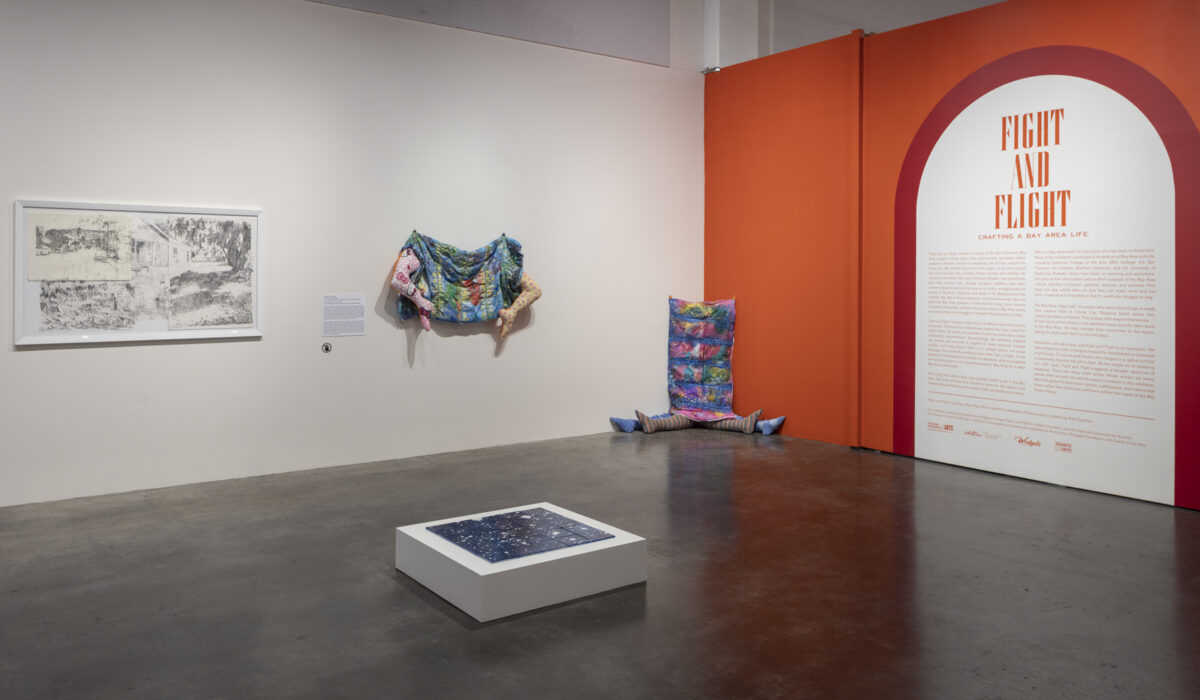Ala Ebtekar
Luminous Ground, 2017-present
Cyanotype on handmade ceramic tiles made from California soil and exposed to sunlight
With Luminous Ground, Ala Ebtekar considers light as both concept and medium. Here, he uses handmade tiles to reference the domed interiors of prayer halls, covered in polychrome tiles representing the heavens. The artist’s twilight-colored tiles are displayed on the gallery floor, an inversion of the viewer’s gaze upward.
The tiles are made with local California soil: handmade, shaped, and fired. The surface of the tiles are treated with potassium ferricyanide and ferric ammonium citrate. In a process similar to cyanotype, the red iron in the chemicals changes to blue after exposure to sunlight. The tiles change from the color of the earth to the color of the sky, a circular meditation on our inner connection to the world around us.
Born in Berkeley, Ebtekar received his education from both the San Francisco Art Institute (BFA) and Stanford University (MFA). He is the founder and director of Stanford University’s Art, Social Space, and Public Discourse, an ongoing Stanford global initiative on art that investigates the multiple contexts that shift and define changing ideas of public space.
Photos courtesy of Henrik Kam.
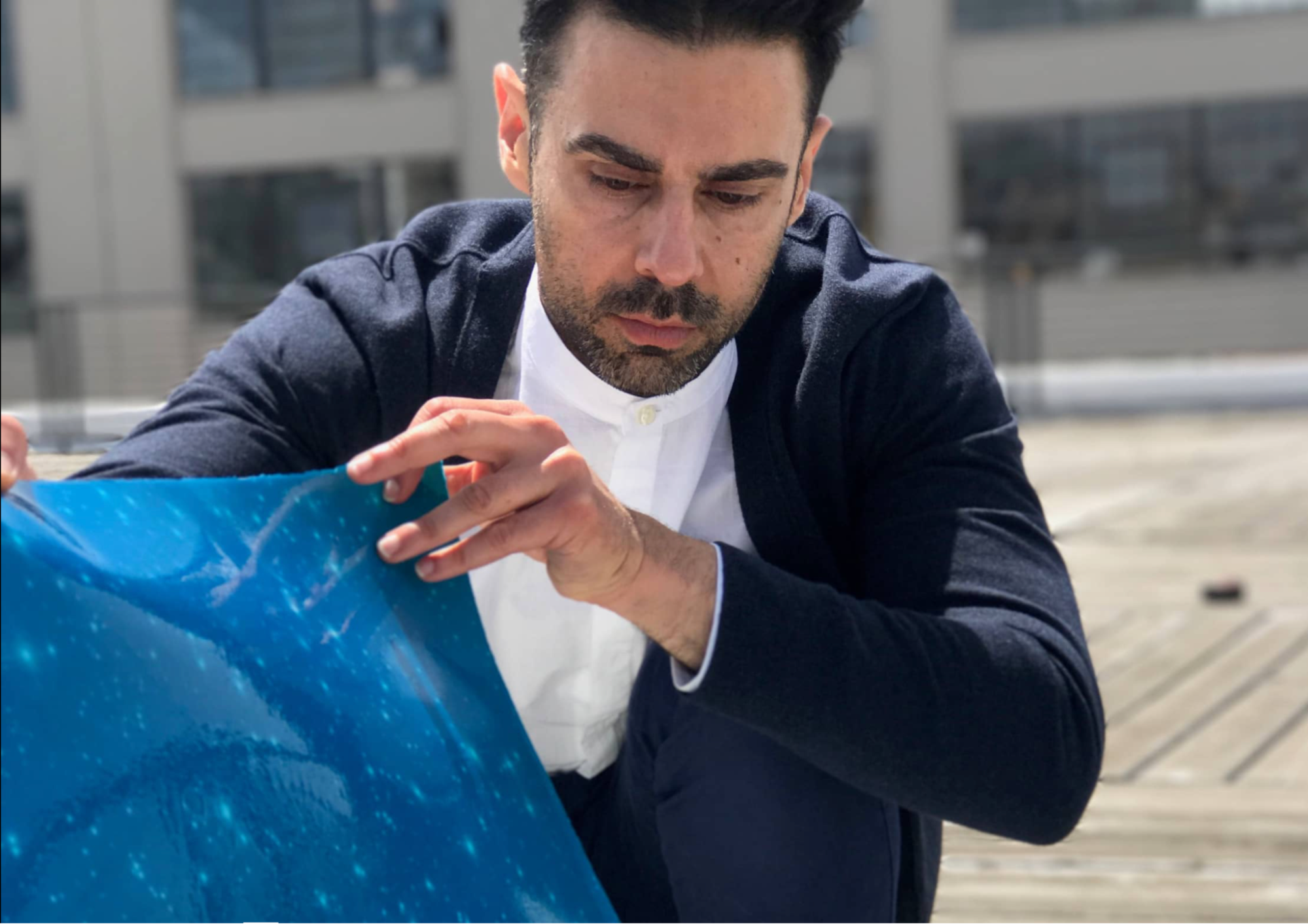
ARTIST BIO
Ala Ebtekar (b. 1978 Berkeley, CA) is an artist who for a quarter century, has situated his art practice as a relentless leveling, exploding, and collapsing of time and space to bring steadying attention to the contemporary moment.
His work frequently orchestrates various orbits and cadences of time, bringing forth sculptural and photographic possibilities of the universe, and time, gazing back at us. This extensive research and making process borrows and physically reworks thousand year old image/object-making traditions up to the latest technological advances in production.


